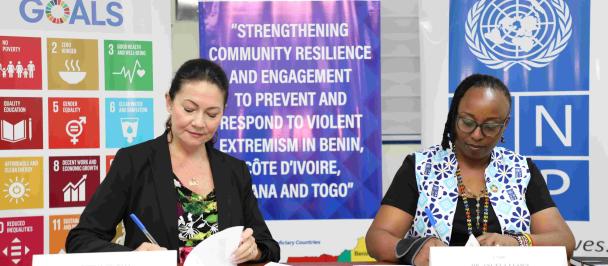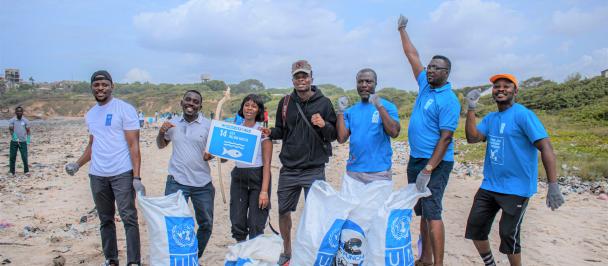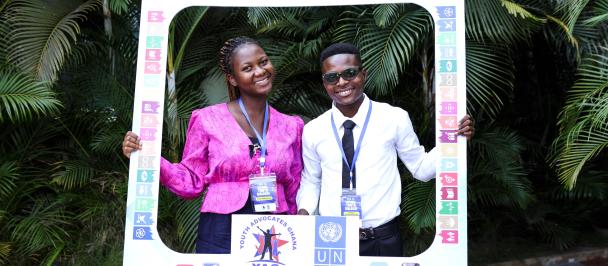Globally, natural resources, both renewable and non-renewable, are part of the real wealth of a nation. These contribute towards fiscal revenue, income, job creation and poverty reduction.
In Ghana, over the past years, extraction of natural resources such as cocoa, gold, and oil among others has helped transform Ghana’s economic growth, with revenue contribution valued at 67% of exports and 15.4% of GDP. Notwithstanding these accomplishments, overtime analysis of trends in Ghana’s natural resources governance performance reveals some deficits and gaps.
As part of efforts to contribute to Ghana’s efforts to enhance natural resource governance, the United Nations Development Programme (UNDP) organized a dialogue to examine Ghana’s progress in its efforts towards good natural resource governance and explore policy options to address existing and emerging deficits to accelerate the achievement of the Sustainable Development Goals (SDGs).
Addressing the dialogue on the theme “Gaps in natural resource governance: spaces for accountability and transparency”, the UNDP Resident Representative in Ghana, Angela Lusigi, called for stronger collaboration among stakeholders to drive a transformational change and co-create together the future of governance needed for sustainable development.
“At UNDP, we believe that there are opportunities for us to work together to consolidate gains and take bold and decisive steps in the area of governance to ensure that Ghana’s wealth of natural resources become true national assets; benefiting all.”
The Keynote Speaker at the maiden Future of Governance Series, Professor Abdul-Gafaru Abdulai, an Associate Professor in the Department of Public Administration at the University of Ghana Business School, applauded Ghana for the substantial progress in the governance of the extractives sector, particularly relating to legislations and value realizations. He noted that Ghana’s gold mining sector scored 69% in the 2021 resource governance index, which is an improvement of 13 points from the 2017 score.
He however highlighted key challenges that need to be addressed to improve natural resource governance in Ghana. Among the key deficits he cited is the issue of contract disclosures where there is currently no legislation or policy to make contract disclosure compulsory. He also mentioned inefficient open data system, revenue management issues and challenges with artisanal small-scale mining particularly issues of environmental degradation.
Moreover, he added that, despite Ghana being signatory to the international protocol on Free Prior Inform Consent (FPIC), which makes it important for the local people to agree to any extraction that takes place in their jurisdiction, the final consent must be given by the sector minister which sometimes limit citizens participation in extraction governance. But he commended the transparency in the oil and gas sector, where oil blocks are awarded through an open and competitive bidding process but stressed on the need for more accountability.
Professor Abdul-Gafaru Abdulai, in his presentation, recommended investment in geological data and open data system, particularly in the mining sector which will be beneficial to the mining industry, land-use planners and environmental scientists. He also suggested the need to explore opportunities to formalize the artisanal and small-scale mining (ASM) operators through innovative financing solutions.
He further recommended the inclusion of mandatory contract disclosure in the mining sector, the need for a more transparent, accountable, and productive use of mining revenues by subnational authorities, as well as greater citizens participation.
A Project Coordinator at CARE International, Mr. Zakaria Yakubu highlighted the need to evaluate the relevance of Ghana’s Natural Resources and Environmental Governance Programme (NREG) to enhance effective coordination between agencies in the resource sector.
“It is my hope that, the NREG initiative would be evaluated and implemented to provide annual sector budgetary support to the natural resource sector and also enable coordination between the various agencies to ensure that important key policies that need to be put in place are addressed”, he stated.
The Future of Governance dialogue series seeks to create a platform for critical analysis and engagements with national stakeholders with interest and mandate in governance to explore innovative and sustainable alternative solutions towards good governance.

 Locations
Locations


